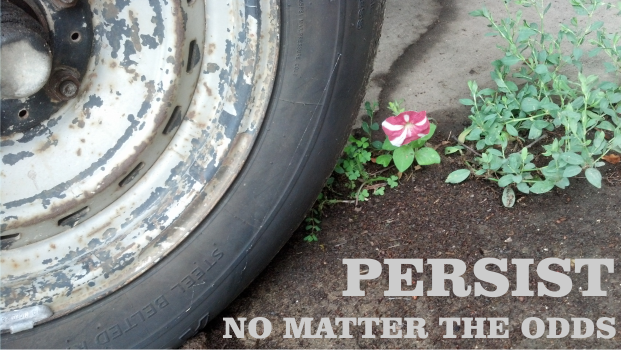










Popular Articles
Crazy-Makers: Dealing with Passive-Aggressive People
Why Are People Mean? Don't Take It Personally!
Struggling to Forgive: An Inability to Grieve
The Secret of Happiness: Let It Find You (But Make the Effort)
20 Steps to Better Self-Esteem
7 Rules and 8 Methods for Responding to Passive-aggressive People
What to Do When Your Jealousy Threatens to Destroy Your Marriage
Guide to How to Set Achieveable Goals
Catastrophe? Or Inconvenience?
Popular Audios
Audio Version of Article: Crazy-Makers: Passive-Aggressive People
Audio Version of Article: Why Are People Mean? Don't Take It Personally!
Index
Previous Next
50 RULES OF LIFE
Rule 9: Persist, No Matter the Odds
People who persist have a higher likelihood of success in life (Anderson and Bergman, 2011). Researchers Duckworth and colleagues (2007) showed through a series of studies that those individuals who have “grit” which they defined as “perseverance and passion for long-term goals” were more likely to succeed at their goals than someone who was equally talented but did not possess grit. The particular characteristic of grit that was associated with success was not how hard someone worked but how long they worked. The more time put into pursuing a goal indicated the likelihood of success.

Want to be successful? Determine your talent and your passion and pursue it. Persist. Persist and create a billion dollar empire after your book is rejected twelve times (J.K. Rowling and her Harry Potter series). Persist and become the “King” of rock and roll after failing auditions to join bands, being rejected after auditioning for a national televised talent show, and being told by the manager of the Grand Ole Opry “You ain't going nowhere, son. You ought to go back to driving a truck” (Elvis Presley). Persist and invent a world changing product after 1000 failed attempts (Thomas Edison and the light bulb). Persist and be listed in the Guinness Book of World Records as the best-selling book that was rejected 121 times (Robert M. Pirsig and “Zen & the Art of Motorcycle Maintenance”).
Whatever your goals are, you are more likely to achieve them if you keep trying. Persist. No matter the odds.
Andersson, H. and Bergman, L.R. (2011). The Role of Task Persistence in Young Adolescence for Successful Educational and Occupational Attainment in Middle Adulthood.
Developmental Psychology, 47, 950-960. DOI: 10.1037/a0023786.
Duckworth, A.L., Peterson, C., Matthews, M.D. And Kelly, D.R. (2007). Grit: Perseverance and Passion for Long-Term Goals. Journal of Personality and Social Psychology, 92, 1087-1101. DOI: 10.1037/0022-3514.92.6.108.
Duckworth, A.L., Peterson, C., Matthews, M.D. And Kelly, D.R. (2007). Grit: Perseverance and Passion for Long-Term Goals. Journal of Personality and Social Psychology, 92, 1087-1101. DOI: 10.1037/0022-3514.92.6.108.
Copyright © 2012
by Excel At Life, LLC.
Permission to reprint this article for non-commercial use is granted if it includes this entire copyright and an active link.
Permission to reprint this article for non-commercial use is granted if it includes this entire copyright and an active link.













